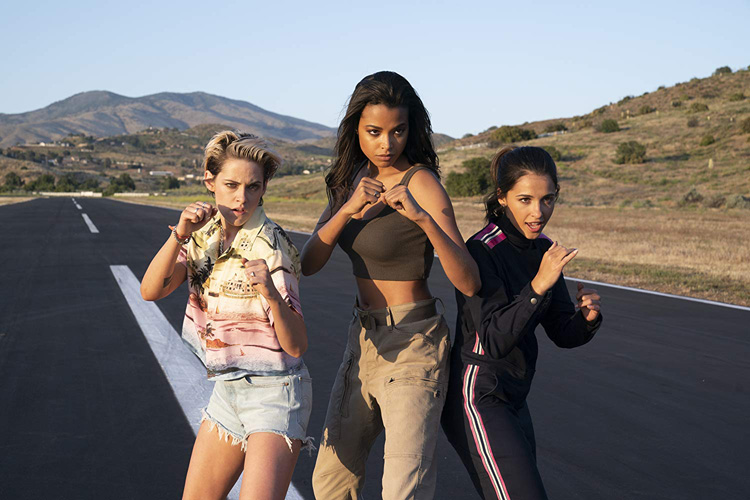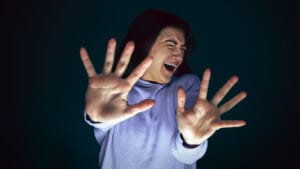Charlie’s Angels has a complicated history as feminist media, to say the least. A team of kickass women was certainly subversive in the 70s, but the show’s producers might’ve been more focused on ass than kicking. The show was, in part, a deliberate attempt to cash in on the trend of “Jiggle TV”—there’s a reason that Farrah Fawcett pinups were populating dorm rooms across the nation. This thorny mix of feminism and misogyny is, as most things are, well summed up by Bojack Horseman: “I do wonder as a third-wave feminist if it’s even possible for women to ‘reclaim’ their sexuality in this deeply entrenched patriarchal society, or if claiming to do so is just a lie we tell ourselves so we can more comfortably cater to the male gaze.”
But then in swings this year’s Charlie’s Angels reboot, promising that we’re thinking too hard about this feminism stuff. The first line of dialogue forces out some elementary didacticism: “I think women can do anything”, says Kristen Stewart’s character, followed by a man pushing back with “women can’t fix cars. Women can’t install drywall.” The ensuing debate would only be radical to the kind of people who wouldn’t watch Charlie’s Angels in the first place. The movie clearly wants to make a grand feminist statement, but every time it tries, it aims for the easiest targets and shallowest topics. There’s close to nothing in this movie that addresses the vicious, internalized, systemic misogyny thriving in our modern world—just greeting card sentiments that were fine by corporate.
The rest of the screenplay fares no better. Our protagonist is Elena Houghlin, a scientist who helped develop a revolutionary new source of sustainable energy. When she presents the portable generator to her boss, she remarks—in all seriousness—“we can’t let this fall into the wrong hands, or else terrorists could use it to induce fatal brain seizures on a mass scale.” What could possibly go wrong with that MacGuffin? Also, isn’t that a pretty big oversight? The movie clarifies that the generator was rushed through production at behest of the villains, but even prototypes of public goods should pass the “can’t be repurposed into a death machine” test. Oh well, plot’s set up, carry on.
When the MacGuffin inevitably falls into the wrong hands, Elena ends up under the protection of the Angels, who she joins because of her invaluable ability to—ahem—“hack anything”. The transition from not a spy to spy is the only development her character has. Charlie’s Angels is devoid of character arcs and internal conflict: a shift in character only happens once, when an Angel realizes that she values her team members, but never did the movie establish that this wasn’t the case. The narrative is perpetually flat and unearned. All obstacles are easily surmountable; the heroes get to have their cake and eat it too (while staying thin and gorgeous!)
Elizabeth Banks proves capable on the direction side of things, though the action scenes are cut to pieces—which is typical of the action genre and still better than a Michael Bay mishmash. Outside of the spy thrills, Banks uses visual cues to illustrate the female bond of shared suffering, succeeding where her screenplay flops. This is also, by far, the least a Charlie’s Angels property has catered to the male gaze. The leering camera of the early 2000s movies has been all but eliminated. This leaves room for unbridled girl power, which comes through in the soundtrack and performances far more than the story.
On that performance note: it’s Kristen Stewart that saves the movie when it’s flailing most. She’s already proved post-Twilight that she’s an incredible actress in the indie scene, but for her return to the mainstream, she plays against type even more. Her extroverted sincerity is the Angels’ secret weapon. When she’s not on-screen, Charlie’s Angels is a forgettable fluff piece; when she is, it’s a short-lived firecracker.
★★ (2/5)




